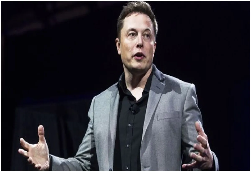Tech billionaire Elon Musk announced a ‘massive DDoS attack’ on X, formerly known as Twitter, which disrupted the much-anticipated interview with former US President Donald Trump. This morning was, according to plans, to mark Trump’s return to the platform ahead of the US Presidential elections in November. Noting his situation, Musk commented via X, ‘It seems there is a massive DDoS attack on X.’
‘We’re working on fixing the issue. If it continues, we’ll do the rest with fewer live listeners and post the conversation later,’ Musk said. The highly anticipated interview did not go on air, leaving the users and the viewers waiting.
How DDoS Attacks Disrupt Services
A DDoS is short for Distributed Denial-of-Service attack, which is a cyber-attack designed to disrupt normal operations by overwhelming a targeted server, service, or network with internet traffic. The depletion of the resources of the target makes them unavailable to real users.
According to cybersecurity firm Fortinet, a DDoS attack is a cybercrime where numerous compromised computer systems assault the target with an overload of traffic. These are many conquered systems—internet-connected devices that could be robots, which coordinate in attacking and overwhelming a target to deny access to services.
IT service management firm Cloudflare referred to DDoS attacks as highly disruptive, leaving websites and servers slow, unresponsive, or offline. The attack will last from some hours to days; in most cases, it is linked to substantial damages and is going to require a long recovery effort.
Microsoft has also outlined that DDoS attacks may cause service delays, disclosure of data, and exploitation of security vulnerabilities. During a DDoS attack, tons of hijacked computers participate in the attack against a unique system that pushes legitimate users out and blocks services.
Ongoing Recovery From Cyberattack
The disruption of the Trump interview serves as the prime example of vulnerabilities that coordinated cyberattacks can cause, even for major platforms like X. It was quite fast for Musk to identify the problem, while his strategy to limit live listeners and post the conversation later showed efforts toward the management of the situation.
Though still being assessed, the actual extent of the attack makes this incident a strong reminder of the ever-growing threat of cyber-attack in this digital world, where highly noticeable events and personalities captivate the attention of cyber attackers.
Currently, Musk and his team at X are working hard to fix the problem, and updates can be expected while the platform gets back on its feet from the attack. By the way, one of the most talked-about subjects is the postponed Trump interview, which has just been intensified by this very cyberattack aimed at silencing it.



